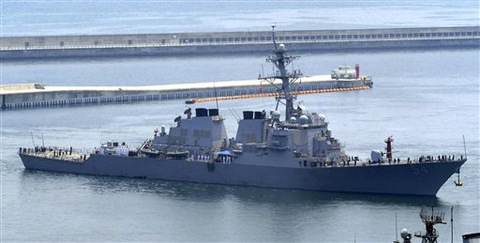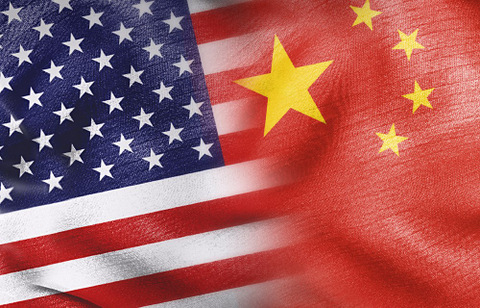The Aquino administration stepped up its criticism of China yesterday as Foreign Secretary Alberto Del Rosario chided his Chinese counterpart for issuing “negative statements” against the Philippines and asked China to respect the upcoming decision of an international tribunal on the South China Sea conflicts to prove that Beijing does not consider itself “above the law.”
The law that Del Rosario was referring to is the United Nations Convention on the Law of the Seas (Unclos) a law which China made clear it does not consider as applying on the arbitration of territorial disputes.
“As we presume to be responsible states, the Philippines, as well as the international community, are asking China to respect the forthcoming ruling of the Arbitral Tribunal and together advance an international rules-based regime,” Del Rosario said.
“If China does not heed our collective call, does it mean that China considers itself above the law?”, Del Rosario added.
In his official visit to Washington last Feb. 17 for a meeting with US Secretary John Kerry, Chinese Foreign Minister Wang Yi accused the Philippines of “political provocation” when it sought arbitration to resolve their two countries’ maritime disputes in the resource-rich waters.
Wang said China was merely observing the law in its non-acceptance of the South China Sea arbitration filed by the Philippines.

FILE – In this June 4, 2010, file photo, the USS Curtis Wilbur arrives at a naval base in Busan, South Korea, for South Korea-U.S. joint drills. China strongly condemned the United States after the missile destroyer deliberately sailed near one of the Beijing-controlled islands in the hotly contested South China Sea to exercise freedom of navigation and challenge China’s vast territorial claims. (Jo Jong-ho/Yonhap via AP) KOREA OUT
UNCLOS, also called the Law of the Sea Convention or the Law of the Sea treaty, defines the rights and responsibilities of nations with respect to their use of the world’s oceans, establishing guidelines for businesses, the environment, and the management of marine natural resources, but in which the United States is not even a signatory.
Wang branded the government’s legal action “irresponsible” as it accused the Philippine government of shutting its doors on one-and-one or bilateral negotiations with China to try to resolve the conflicts.
“We note that Foreign Minister Wang said that China is a member of the international community and that it abides by international law. We have had countless meetings with China to try to address the issue between the two of us to no avail. We have invited China many times to join us in arbitration as early as 2012, again to no avail,” Del Rosario said.
China in 2006 declared it would not accept arbitration of disputes concerning territorial sovereignty and maritime rights, in accordance with the Unclos, Wang said.
“The Chinese government will certainly stick to this position,” Wang said, adding that more than 30 countries, including Australia, have also made similar “exclusive” declarations.
He gave a list of reasons the Philippines’ arbitration attempt is invalid and unacceptable, including unilateral moves without consulting China, which goes against international norms, as well as the common sense argument that arbitration applications are usually lodged only when all other means are depleted.
China and the Philippines have several agreements that disputes should be solved through dialog and consultation.
The Philippines has also signed the fourth article of the Declaration on the Conduct of Parties in the South China Sea (DOC), which states that disputes should be solved by those countries directly related, through negotiation and consultation.
Wang said that the arbitration attempt before the Hague violated previous agreements and raised suspicion of its complicated international background or even hidden political motives.
The Philippines initiated an arbitration case against Beijing in March 2013 to nullify China’s massive claim, which is represented by nine dashes that resembles a tongue-shaped encirclement of nearly the entire South China Sea, including areas that are within Manila’s territory.
Within this enclosure, China has rapidly undertaken enormous reclamation activities in seven disputed reefs, which has alarmed several countries like the United States, Australia, Japan and the Group of 7 nations.
China has refused to participate in the proceedings and said it will not honor the final ruling by the Netherlands-based tribunal which is expected on or before May this year.
Analysts believe the reclamation will allow China to project military power in Asia’s maritime heartland and cement their claims in the resource-rich waters.
The Philippines said China’s actions raises the level of tensions in the region and is threatening freedom of navigation in the waters where a bulk of the world’s trade passes through.
China has defended its building spree, saying the reclamation is within its sovereign rights while admitting that the facilities it constructed would both have civilian and military functions.
This month, China was reported to have installed surface-to-air missiles on the disputed Woody Island in a part of the South China Sea, called the Paracels, and is jointly claimed by Vietnam and Taiwan.
China through its state run paper, People’s Daily, said in a commentary that “by not accepting and not participating in the arbitration initiated by the Philippines, China is observing international law in the true sense.”
“The Philippines has lately been selling the South China Sea arbitration case it unilaterally initiated to the international community while defaming China, claiming that China’s non-acceptance of and non-participation in the arbitration undermines international rule of law,” it said.
Such moves are best captured by a Chinese saying: the guilty party files the suit first.
“The Philippine side is misleading public opinion by playing the ‘victim’ in the arbitration farce it started in an attempt to cover up its moves that violate international law and trample upon international legal order in pursuit of illegal interests for itself. Non-acceptance of and non-participation in the arbitration is the move China has made to safeguard the international rule of law,” it said.
China said its non-acceptance of and non-participation in the arbitration is to uphold the sanctity of the Unclos expressing its belief that it does not apply to territorial disputes.
Furthermore, China’s declaration in accordance with Unclos in 2006 excludes disputes concerning maritime delimitation from arbitral proceedings.
Undeniably, the dispute between China and the Philippines is in essence a dispute over territorial and maritime delimitation issues.
In fact, the Philippines’ initiation of the arbitration, in total disregard of international law and the spirit of Unclos undermines the authority and sanctity of the Convention.
In response to the Philippines’ illegal moves, China refuses to “dance with it”, and follows the policy of not accepting or participating in the arbitration.
This position testifies to China’s strong sense of responsibility, and is the righteous act China has taken to defend the legitimate rights and interests of a State Party to Unclos and to uphold the authority and sanctity of this international instrument.
China’s non-acceptance of and non-participation in the arbitration is to honor the joint commitment it has made with the Philippines, it said.
It added the two sides reached consensus on how to address the dispute.
“China and the Philippines have issued joint statements and news releases on multiple occasions and they both signed the DOC, in which the two sides have pledged to settle disputes through friendly negotiations and consultations. By unilaterally initiating the arbitration, the Philippines has negated its solemn commitment to its neighbors and the international community, and breached one of the core principles in international relations – Pacta sunt servanda (‘agreements must be kept’),” it said.
China said the Philippines jeopardized its own international credibility.
“By contrast, China’s position of not accepting or participating in the arbitration demonstrates that it is true to its words,” it added.
China said in another state-controlled outfit, Global Times, that the United States is courting trouble by intruding into the South China Sea territorial disputes.
“The South China Sea issue has been hyped since 2009, gradually escalating into a regional security hotspot and a key topic of Sino-US competition. Although an external player, the US has been playing a primary role in internationalizing the South China Sea issue,” it said.
It added that Washington has launched a rebalancing policy with its “return” to Southeast Asia to further consolidate and expand its relations with countries in the region. Meanwhile, it has also kept meddling in the South China Sea disputes.
Instead of keeping a neutral position in territorial disputes, the Obama administration accuses China of worsening the scenario over the waters through political dialogues with the Philippines, Vietnam and other states who boast rival claims, it said.
The US has carried out a series of dialogs with the Association of Southeast Asian Nations (Asean ), expecting it to adopt a united and powerful stand in the South China Sea controversy and making it an issue between China and the whole bloc, it added.
“Washington has accused Beijing of land reclamation activities outside the scope of Beijing’s sovereignty, and called for it to halt the ongoing projects and stop militarizing disputed areas. Besides patrolling at the sea frequently, the US has also increased defense dialogues with Southeast Asian countries and deepened military cooperation with them,” China added.
“Washington is seeking trouble for itself by intervening in the South China Sea issue. And its next government will have to put in more resources to cope with this legacy of the Obama administration,” it said.





